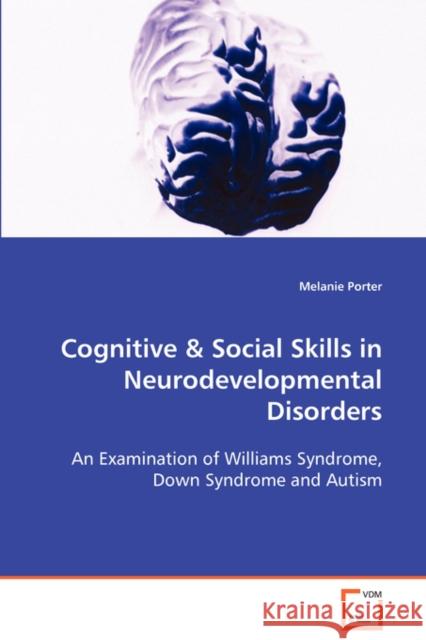Cognitive & Social Skills in Neurodevelopmental Disorders » książka
Cognitive & Social Skills in Neurodevelopmental Disorders
ISBN-13: 9783639089318 / Angielski / Miękka / 2008 / 172 str.
Developmental disorders are often studied as either independent research groups or as clinical case presentations; these approaches are rarely combined. This book directly compares cognitive and social functioning in three developmental disorders: Williams syndrome (WS), Down syndrome (DS) and autism (AS), from both a research and a clinical perspective. This unique approach provides new insights into cognitive functioning within WS, DS and AS, including: attention; memory; learning and processing styles; verbal abilities; spatial skills and reasoning. New insights are also provided into how WS, DS and AS view the world from a social perspective, including: their ability to read emotions; their motivational drive toward social interaction; and their Theory of Mind, or their ability to understand other people s behaviours based on underlying desires, emotions, and thoughts. Findings also highlight within-syndrome variability in cognitive and social functions in WS, which was previously thought to have a homogenous cognitive profile. The book is a valuable resource for researchers, as well as health and education professionals."
Developmental disorders are often studied as either independent research groups or as clinical case presentations; these approaches are rarely combined. This book directly compares cognitive and social functioning in three developmental disorders: Williams syndrome (WS), Down syndrome (DS) and autism (AS), from both a research and a clinical perspective. This unique approach provides new insights into cognitive functioning within WS, DS and AS, including: attention; memory; learning and processing styles; verbal abilities; spatial skills and reasoning. New insights are also provided into how WS, DS and AS view the world from a social perspective, including: their ability to read emotions; their motivational drive toward social interaction; and their ‘Theory of Mind’, or their ability to understand other people’s behaviours based on underlying desires, emotions, and thoughts. Findings also highlight within-syndrome variability in cognitive and social functions in WS, which was previously thought to have a homogenous cognitive profile. The book is a valuable resource for researchers, as well as health and education professionals.











